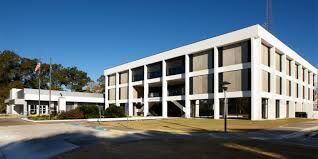When St. James Parish was considering a controversial and eventually scuttled $1.25 billion plastics plant in the Convent area, parish officials met in two secret meetings with company representatives that a judge now says violated the law.
A state district judge has ruled that the consecutive meetings nearly six years ago among Parish Council and Planning Commission members about the Wanhua plant broke the state's transparency law, even though neither panel had a quorum of its membership.
But 23rd Judicial Judge John H. Smith found the meetings on the evening of May 14, 2019, which were set up to avoid a majority of either panel showing up, constituted illegal "walking quorums" since it circumvented the intent of the law.
Smith wrote in his 14-page judgment signed Jan. 2 that "citizens of St. James were not afforded the opportunity to be present whilst Wanhua's application was being discussed by Commission and Council members."
The plaintiffs said they didn't discover the secret meetings until emails emerged after the fact through public records requests.
The meetings happened under the administration of then-Parish President Timmy Roussel and with a council and a commission of mostly different membership than their current makeup. Current parish officials didn't immediately respond to a request for comment.
In 2018, Chinese firm Wanhua Chemical had proposed a polyurethanes plant on 250 acres near the majority Black community off La. 3125.
At the time of the secret informational sessions, the Planning Commission had already had several previous meetings, airing the company's plans and hearing community concerns, including over dangerous chemicals that would be stored in the facility.
The informational sessions were held days before a key and divided Planning Commission vote that ended up sending the plan to the Parish Council for a final decision.
After more public hearings and a lawsuit by the plaintiffs represented by the Tulane Environmental Law Clinic over the meetings in July 2019, the council sent the plan back to the commission.
Amid the public opposition, costly tariffs imposed by the first Trump administration and a near doubling of the plant's construction cost, Wanhua withdrew its plans in September 2019. The company but failed to win local backing.
'Walking quorum'
Under state law, when a majority, or quorum, of members of a government panel meet, those gatherings are typically public, requiring advance notice with an agenda and opportunities for public comment.
At trial and in court papers, parish attorneys had argued that the informational meetings didn't violate that requirement because they lacked a quorum, because those attending took no votes, and because the doors of the meeting room were not locked.
Past court precedent in Louisiana, however, has barred so-called "walking quorums," in which a series of meetings are held in private, where no single quorum occurs, but a majority of members end up attending the various meetings in aggregate.
Smith noted that attendees were told in a parish invitation sent at the direction of the meetings' organizer, then-parish operations director Blaise Gravois, that the public was not invited.
Six of the 10 then-planning commissioners and five of the seven then-councilmen attended the two sessions collectively. Wanhua officials, Gravois, then-parish consultant Bliss Higgins and parish land use attorney Victor Franckiewicz Jr. also attended both, the ruling says.
Though Smith found that the defendants did have some level of awareness of the "procedural errors of (their) conduct," he found the private meetings weren't nefarious nor "held with ill-intent."
Smith declined to levy civil penalties against the parish officials or issue an injunction sought by the plaintiffs barring similar gatherings in the future.
"The defendants are now well aware of the concept and application of a 'walking quorum' as it relates to (state law)," Smith concluded.
In the ruling, he left open the possibility of the plaintiffs being awarded attorneys' fees and costs.
In a statement, Sharon Lavigne, founder of one of the lawsuit plaintiffs, Rise St. James, charged that the parish’s illegal actions "are indicative of a larger problem that remains relevant today" and were "a betrayal of the very principles of good government and environmental justice.”
Eve Butler, the suit's lead plaintiff, said she is hopeful that the ruling will instigate meaningful change.
"I hope that going forward, every resident of St James Parish is able to be informed of the true chemical impact of industry, especially by those elected to consider our interests," Butler said. "Although you can buy water, you can't buy health or clean air on the way home."
Editor's Note: This story was updated Wednesday, Jan. 15, 2025, at 10:30 a.m. to clarify comments from Sharon Lavigne.

